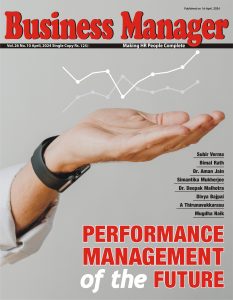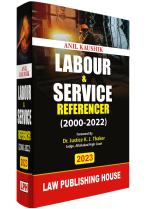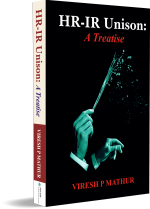Every region globally has been severely impacted by the COVID-19 catastrophe. The production and operation of businesses, as well as the management of human resources, are facing unprecedented problems as the crisis worsens. However, the post-pandemic era offers a wealth of new changes in the recruitment sector. If the HR department can effectively navigate these difficulties, one may successfully build teams of exceptional individuals. There’s a fair share of detail to talk about how to find and keep employees in the post-pandemic period and what the future of hiring might entail.
A business requires a complete plan tailored to the complex recruiting environment of today to provide the best possible recruiting experience. There are components opted for effective hiring by recruiters from the top branding firms, which can help one accomplish that. Let’s look at the impact of the pandemic on recruitment and employment.
Change in the hiring process
The shift to a primarily online recruitment process has been the most significant transformation in hiring since the Great Recession. Many organisations’ hiring objectives have also altered. Hiring managers now consider candidates beyond those who possess the necessary skills. “Compound talent” — talent with a combination of abilities and knowledge is what businesses desperately need, to advance economically and in the market.
Also read: Sujit Bose joins Indifi as Sr. VP-HR
Employer branding is vital
Employer branding is becoming even more significant as company culture influences hiring more than ever. Many businesses do not currently have an employer branding strategy. The company’s external branding helps it become known to potential employees. It comprises messages outlining why the business is a great place to work and the factors influencing hiring decisions and staff retention.
Internal branding, on the other hand, establishes the company’s value among current employees and can signify the company’s dedication to its workers. It serves as a tool to express the company’s distinctive work experience to current and potential workers. The same also functions as a way for the company and its employees to build relationships.
Employer branding, or the idea of enhancing the business’s reputation as an employer, has emerged as the newest buzzword in the recruiting industry. In the hiring process, it’s critical to demonstrate to (possible) employees what sets the firm apart from its rivals, such as the values, culture, benefits, beneficial social impact, etc.
Robust demand for flexible work arrangements
Naturally, there will be a conflict between employees’ perceptions of future career patterns and the possibilities available as work evolves. Although one might not be able to predict how work habits will change over the coming years, the transition to more flexible work arrangements is already well underway. Although the current issues that HR departments are dealing with, such as the need for more flexible work schedules and more excellent work-life balance, have been in the works for a while, the pandemic significantly aggravated them.
This is significantly related to the psychological adjustments made by workers in the post-pandemic period. First, the traditional eight-hour workday is slammed by the variety of current social job types. The value of employees’ free time has increased under the same compensation benchmark. Second, the epidemic’s psychological adjustment has heightened employees’ thinking on life planning. People are compelled to reflect on the things most important to them and how to live a more fulfilling life due to a global public health emergency that has made them aware of how short and limited life is.
There are a few essential strategies for recruiting post-pandemic that one needs to take a look at.
Define the perfect candidate
The first step is to determine the possible employee’s skill set. One needs to try to be as thorough as one can. Differentiate between technical talents that are a must-have and soft skills that are “extra points if you have.” When creating the persona of the ideal applicant, remember to strike a balance. Going too far in the details and being unrealistic will result in no applicants believing they are qualified for the position. Going overly broad and ambiguous will draw in too many unqualified job applicants.
Create awareness of the company
Employer branding, or the idea of enhancing the business’s reputation as an employer, has emerged as the newest buzzword in the recruiting industry. In the hiring process, it’s critical to demonstrate to (possible) employees what sets the firm apart from its rivals, such as the values, culture, benefits, beneficial social impact, etc.
Examine a CV properly
Determining what one wants in a CV and who to include in the hiring process are equally important. For instance, does one require someone with more practical business experience or someone more eager to learn more?
Wrap up the recruitment process
Following the interview, one should talk to the appropriate staff members to get their opinions and decide which candidate is the greatest fit. Conduct a final interview with the selected candidate to confirm all the details before making a decision and verify the references to ensure they are reliable.
Employee incentives can assist employees in meeting their diverse requirements and pique their interest in their work, allowing them to stay upbeat and fully realise their potential. This will increase the effectiveness of the business as a whole while also enabling its staff to advance professionally.
Stay connected with us on social media platform for instant update click here to join our LinkedIn, Twitter, & Facebook

























Add comment